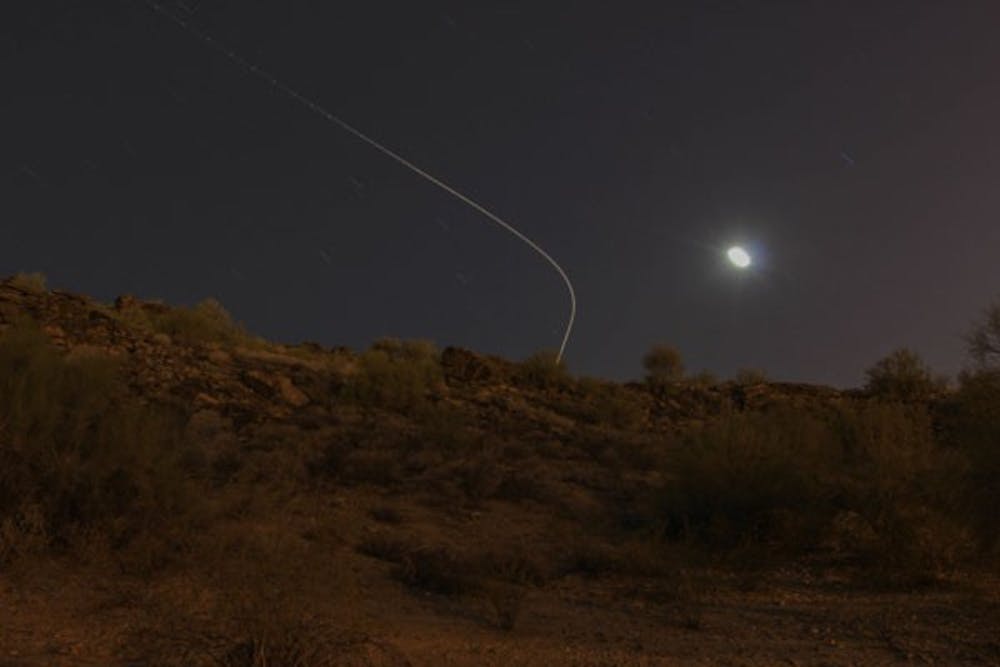 Damaged soil due to military testing has been reported in widespread areas of Arizona. This site, similar to sites that ASU students have been sampling, shows decreased amounts of clay. (Photo by Dominic Valente)
Damaged soil due to military testing has been reported in widespread areas of Arizona. This site, similar to sites that ASU students have been sampling, shows decreased amounts of clay. (Photo by Dominic Valente)A $2.3 million grant will allow ASU researchers to work on restoring soils destroyed by military training.
Investigators from ASU, the University of Colorado and the U.S. Geological Survey will develop microbes that will renew soil crusts that have been eroded by military training, human activity and weather.
Environmental life science graduate student Ana Giraldo said the damaged soil can lead to environmental problems, such as a shortage of plants.
“In some places the plants disappear, and in other places, they are less abundant," Giraldo said. "The richness of the plants is less now than 10 to 20 years ago."
Biology professor Ferran Garcia-Pichel said unstable soils can create particles that are picked up by the wind and increase storm severity.
“We have these dust storms and these humungous haboobs as a result of the soils being unstable,” Garcia-Pichel said.
ASU's role will be to develop a type of microbial nursery that will produce a mixture of natural soils and microbes, he said.
“We are going to take the microbes that grow naturally in these communities of biological soil crusts, grow them in the lab and make a lot of that bio soil mass,” Garcia-Pichel said.
ASU researchers will ensure the microbes can withstand life in the desert and investigate the best way for them to regenerate before placing them in the field, he said.
Investigators from the U.S. Geological Survey and the University of Colorado are collaborating with ASU. Garcia-Pichel said they will help monitor trials, conduct hypothesis testing and provide feedback for improvements.
University of Colorado ecology and evolutionary biology professor Nichole Barger said her school will evaluate how the soils in the field respond to the reintroduction of the organisms.
“We’ll be looking at water infiltration, soil erosion, soil nutrients and soil stability,” Barger said.
“This is a pretty exciting project, because it hasn’t really been tried at this scale with this level of investigators yet,” Barger said.
The Dugway Proving Ground in Utah and Fort Bliss in Texas were chosen as the project's testing grounds because they display variance in desert climate.
Barger said big machinery and military training with tanks can disturb soil communities.
“The military is conscious about the need to use these lands for military training and activities, but at the same time, they want to keep those activities sustainable and the environment sustainable,” Garcia-Pichel said.
Over the course of the project, Garcia-Pichel said investigators hope to develop an optimum product that can be used beyond military bases.
The Strategic Environmental Research and Development Program approved funding in fall 2012. The SERDP will support the project over the course of five years. Researchers have already started on some preliminary work.
Reach the reporter at jcsolis@asu.edu




